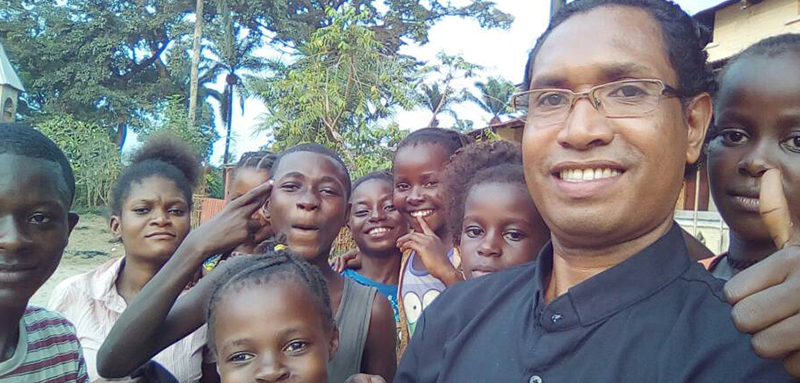An Interview with Father Kornelius Jogo Puka, svd PDF
It is 6:30 in the Beno Mission, located about 70 km from the city of Bandundu, on the banks of the Kwilu River, in the Democratic Republic of Congo. Among the trees, you can see the first rays of the sun. It is a sign that life is beginning in the Beno countryside. The marathon day of the "jungle missionary" is also started, as Fr. Kornelius, originally from Indonesia, is called here.
Father Kornelius does not lose his smile, despite the many meetings that await him and the problems to which he will have to find solutions throughout the day. He has just finished his mass in the parish church. He goes towards the grotto of the Virgin Mary, located a few meters from the Church. He is surrounded by Legionaries of Mary and several children who babble during the rosary prayer. These children are deaf and dumb from the School of Beno. They are always present at the morning Mass and the rosary prayer. They love their Parish Priest. They communicate with him through looks and gestures. They embrace him after the rosary, before heading towards the boarding school.
Father Kornelius: "I've been in Beno for 6 years. Contact with the deaf has allowed me to enter their world and learn their language. I visit them several times a day. It is a very powerful experience for me. However, the situation in which they live is deplorable, and generates in me a feeling of helplessness. They are children abandoned to their fate. They live and study in difficult conditions. They are doubly abandoned, both by their families and society. The didactic material, which served in the past for the teaching of these deaf and dumb children, no longer exists. The books have not been renewed or updated for more than 20 years. The teachers have aged. There are very few young people who accept today to prepare for the education of the deaf, especially to come to a place as isolated as Beno. To this is added the lack of drinking water in the boarding school and the scarcity of food. All these children come from poor families and most of them have been abandoned by their families, due to their auditory and linguistic disabilities.
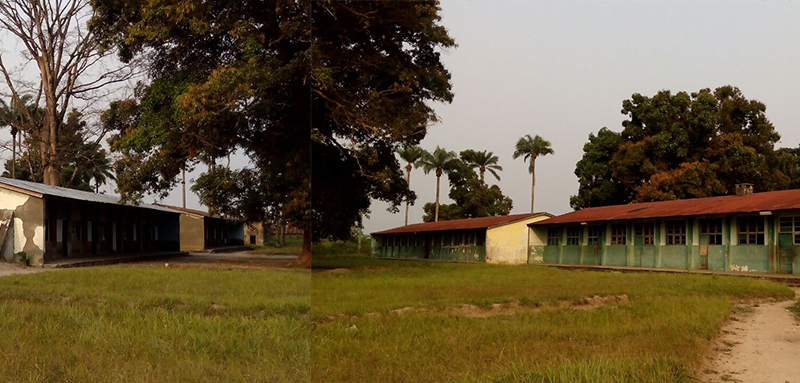
The School of learning for the deaf and dumb has existed since 1960. This school has welcomed thousands of deaf and dumb from all corners of the country, as well as other Central African countries; children who are integrated into society thanks to the training received in Beno. However, since the 90s, due to the continuous wars that the Democratic Republic of Congo has suffered, and the economic situation of the country, the school is in a state of ruin. The four buildings that house the twelve classrooms of the Primary and Secondary courses, as well as the children's bedrooms, have deteriorated terribly due to the passage of time and are sinking.
"When the deaf speak and understand"
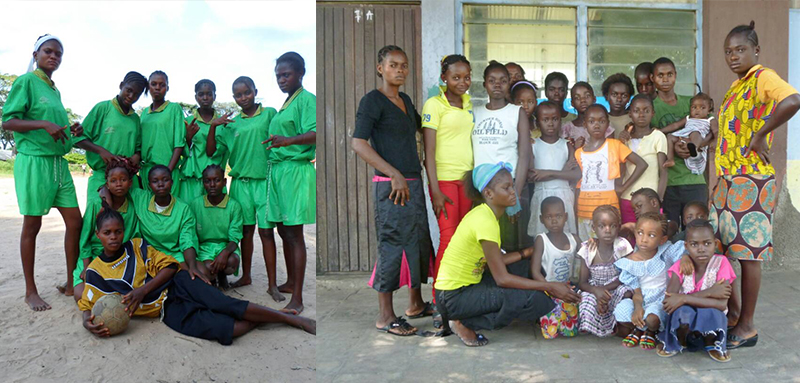
"If we want to give hope once again to the hundreds of children still in that school, then it would be urgent to rehabilitate the buildings, train new educators and equip the school with teaching materials," says Father Cornelio. "Bo ta tuba ye te kuwa diaka" in Kikongo (one of the five national languages spoken in this area), and which means "you will see and understand again", is the message that Father Cornelio addresses to people of good will, so that they come to the aid of these deaf children.
How does the day of a missionary priest in Beno look like?
Father Kornelius: as a priest and religious missionary, I celebrate the sacraments, I train the catechists and I accompany the apostolic groups of the parish. The parish of Beno has more than 50 basic christian communities. The furthest community is 70 km from the parish of Beno. For my work, I have to move from one community to another. This mission trip can last 7 or 8 days. In each community, a layperson, called a catechist, presides over the celebration of the Word, in the absence of the priest. Since for now I am the only priest of the parish, and in view of the large number of people that make it up, I visit them once every three months. In all the towns, its inhabitants welcome me very well. My arrival is a party. It is the celebration of the Eucharist, a baptism or a first communion, or even a wedding. On the contrary, when I am in the parish, my journey begins with personal prayer, followed by Mass. After the Eucharist, breakfast before visiting the deaf and dumb at their school. I spend the rest of the day receiving people and participating in the meetings of apostolic groups. In a mission like Beno's, the priest is "everything." He is the doctor, the mechanic, repairer of clocks, the agronomist, etc. People come to see you for all kinds of things. You have to be available and listen to them.
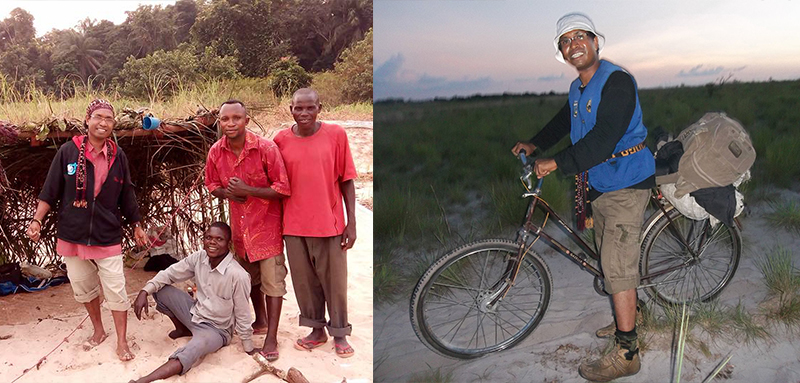
Fr. Kornelius visits the Fishermen
How do you travel to the villages?
Father Kornelius: Generally, I travel by bicycle, but sometimes on foot or by canoe. The off-road vehicle that we had has been damaged for three years. A part of our parish is located on the banks of the Kasai River. Many of my parishioners are fishermen who live in cabins. I usually visit them in a canoe. Sometimes, the inhabitants of nearby villages are grouped in a place and there we celebrate the mass and other sacraments. During the dry season, it is difficult to find them, because it is the best time for fishing.
What are the main concerns of these communities or the parish?
Father Kornelius: There are several, but I am going to limit myself to what I consider the most important and urgent. It is about the young people dropping out of school, particularly the girls. Many of them become mothers very young. There are many cases of unwanted pregnancies due to lack of education. Others, local customs force them to get married very soon. Poverty is another cause of school dropouts. Many families in our communities live below the poverty line and face the challenge of having to cover their basic needs every day. These families are unable to pay their children's school expenses.
The future of our communities is the youth. The lack of training is worrisome, especially when it is found that the illiteracy rate does not stop increasing. With respect to the parish, we try to create structures to sensitize and guide young people. Sometimes we organize conferences and activities with the aim of awakening the conscience of parents and young people, but it is not an easy task. In addition, our material means are very limited. Also, last year we created a musical group in the parish. Knowing that young people like music, we take advantage of this circumstance to guide them. They are little steps, but they are full of hope. We trust in the arrival of a new heaven and a new earth to our Beno communities.
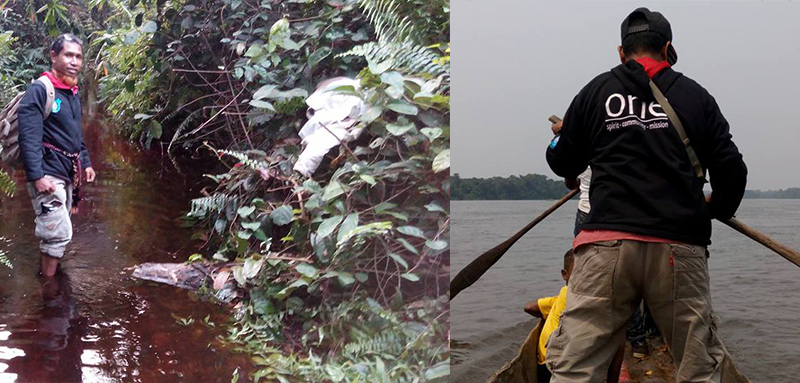
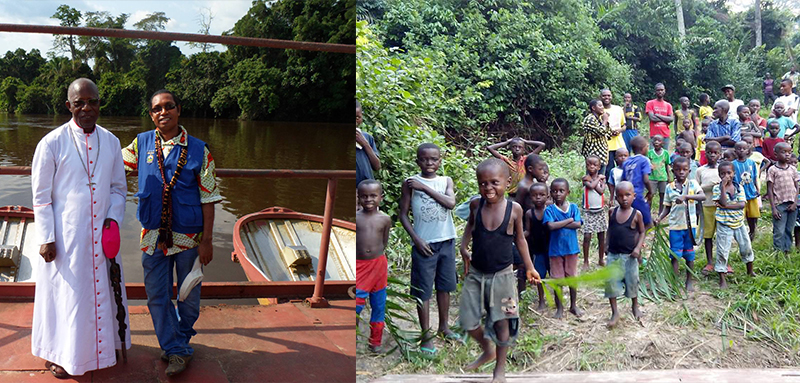
Bishop Gaspard Mudiso, svd of Kenge Diocese visits Fr. Kornelius and the people of Beno.









